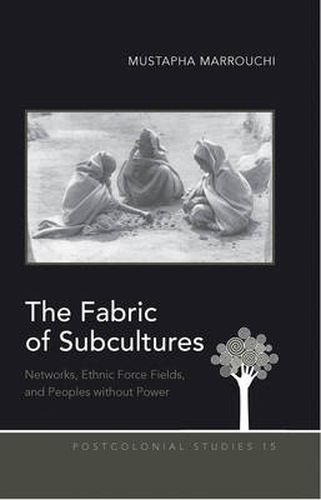Readings Newsletter
Become a Readings Member to make your shopping experience even easier.
Sign in or sign up for free!
You’re not far away from qualifying for FREE standard shipping within Australia
You’ve qualified for FREE standard shipping within Australia
The cart is loading…






This title is printed to order. This book may have been self-published. If so, we cannot guarantee the quality of the content. In the main most books will have gone through the editing process however some may not. We therefore suggest that you be aware of this before ordering this book. If in doubt check either the author or publisher’s details as we are unable to accept any returns unless they are faulty. Please contact us if you have any questions.
The Fabric of Subcultures reflects on the state of the postcolonial signature behind stylistic refinements - a world of letters relatively dependent on the West for economic and political realms, and in which language systems, aesthetic orders, and genres struggle for dominance. Rejecting facile talk of postmodernism, with its suggestion of a happy melting pot of literature, this book exposes an emerging regime of inequality in the world of letters, where minor languages and literatures are subject to the invisible but implacable violence (of the letter) of their dominant counterparts. Inspired by the writings of Pierre Bourdieu, the book develops the first clear model for understanding the real value of the republic of postcolonial letters (if it ever existed). It proposes a baseline from which we might measure the validity of the emergent, as opposed to residual, signature, while arguing for the importance of literary capital and its role in giving legitimacy to developing peoples in their incessant struggle for international recognition. Within its overarching theory, the book locates three main categories in the genesis of postcolonial literature - English, French, and Creolismo - and closely examines towering figures in the realm of postcolonial letters - Jacques Derrida, Homi Bhabha, Patrick Chamoiseau, Mahmoud Darwish, Jamaica Kincaid, and Caryl Phillips, among others. It also explores the significance of cultural practices related to food (couscous) and sports (soccer) represented here by the iconic figure of Zinedine Zidane, a Beur born and raised in la banlieue (the suburbs). In other words, the book examines from the bottom up the political struggle of the postcolonial subject in the era of postmodernity - one framed by sites of resistance and efforts at constructing a theoretical model for the inventory of the present at a time when words like empire have possibly taken on a new significance.
$9.00 standard shipping within Australia
FREE standard shipping within Australia for orders over $100.00
Express & International shipping calculated at checkout
This title is printed to order. This book may have been self-published. If so, we cannot guarantee the quality of the content. In the main most books will have gone through the editing process however some may not. We therefore suggest that you be aware of this before ordering this book. If in doubt check either the author or publisher’s details as we are unable to accept any returns unless they are faulty. Please contact us if you have any questions.
The Fabric of Subcultures reflects on the state of the postcolonial signature behind stylistic refinements - a world of letters relatively dependent on the West for economic and political realms, and in which language systems, aesthetic orders, and genres struggle for dominance. Rejecting facile talk of postmodernism, with its suggestion of a happy melting pot of literature, this book exposes an emerging regime of inequality in the world of letters, where minor languages and literatures are subject to the invisible but implacable violence (of the letter) of their dominant counterparts. Inspired by the writings of Pierre Bourdieu, the book develops the first clear model for understanding the real value of the republic of postcolonial letters (if it ever existed). It proposes a baseline from which we might measure the validity of the emergent, as opposed to residual, signature, while arguing for the importance of literary capital and its role in giving legitimacy to developing peoples in their incessant struggle for international recognition. Within its overarching theory, the book locates three main categories in the genesis of postcolonial literature - English, French, and Creolismo - and closely examines towering figures in the realm of postcolonial letters - Jacques Derrida, Homi Bhabha, Patrick Chamoiseau, Mahmoud Darwish, Jamaica Kincaid, and Caryl Phillips, among others. It also explores the significance of cultural practices related to food (couscous) and sports (soccer) represented here by the iconic figure of Zinedine Zidane, a Beur born and raised in la banlieue (the suburbs). In other words, the book examines from the bottom up the political struggle of the postcolonial subject in the era of postmodernity - one framed by sites of resistance and efforts at constructing a theoretical model for the inventory of the present at a time when words like empire have possibly taken on a new significance.